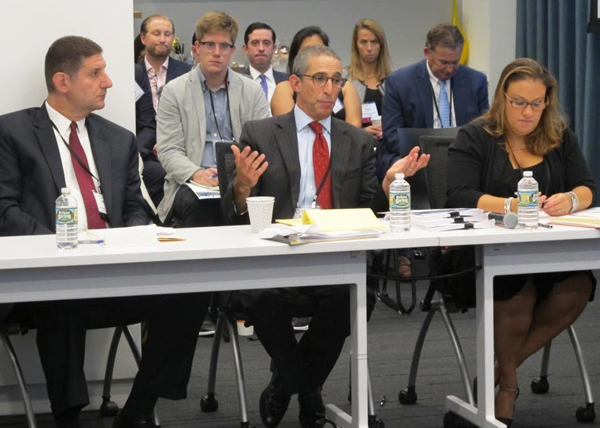Trending
The rent is too damn low: Attorneys discuss how landlords can maximize collections
“If you go to court, you’re really a loser to begin with.”

A trio of real estate attorneys sitting on a Tuesday morning panel had a strong message for landlords fighting with their tenants over rent: don’t end up in court.
“If you go to court, you’re really a loser to begin with,” said Cory Weiss, a partner at Ingram Yuzek, “because the courts are so tenant-oriented that a tenant could spend months in court not having to pay any rent and then sign a stipulation giving him or her six months to pay the rent. The judge won’t impose legal fees on tenants.”
Weiss and his colleagues Michael Capozzi and Shari Laskowitz spoke on a panel in Midtown Tuesday at the New York Multifamily Summit about how landlords can maximize rents and collections at their buildings. While a common refrain in New York these days is that housing is too expensive, Weiss spoke at length about what landlords can do to increase what they can earn from their rent-regulated properties.
One strategy is to make major capital improvements at the property, such as installing a new boiler or new windows. Another is to try and establish if tenants have an income of $250,000 or more and asking tenants about moving from one apartment in the building to another to establish a vacancy.
However, Weiss emphasized that landlords need to be incredibly careful when talking to tenants about moving, as it is easy for such a request to be construed as tenant harassment.
“The laws provide that if a landlord communicates with a tenant about offering them money to move, the tenant, if they say ‘Don’t talk to me,’ then the landlord can’t communicate with them for six months about moving,” he said.
Capozzi focused on steps landlords can take to make sure they don’t afoul of the city’s anti-Airbnb efforts, which include installing cameras and asking building employees to keep an eye out for signs that apartments are frequently being used by several different people. Laskowitz spoke about the two main types of court proceedings landlords can deal with: nonpayment, where landlords work to collect unpaid rent, and holdover, where landlords try to evict tenants.
However, she again stressed that the best legal strategy for landlords is to avoid court altogether, as judges will be reluctant to evict tenants and going through the courts take a long time.
“The court system is slow,” she said. “If you can avoid it, you should. Nothing happens quickly there, so it’s not a process you want to get into unless you have to.”




